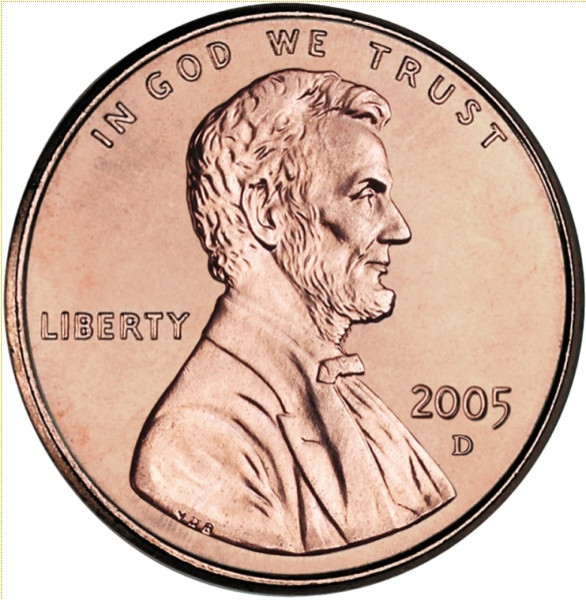Phasing Out The Penny: Will The US Treasury Get Rid Of The One-Cent Piece?

With Canada phasing out its penny, some economists are asking if the United States should follow suit.
The Royal Canadian Mint on Monday officially cut off distribution of one-cent coins to financial institutions. But while many Americans still make use of the smallest denomination of currency, the U.S. government reports that the copper coin has simply worn out its welcome.
According to CNN, the U.S. Mint spent two cents to produce and ship each of the 5.8 billion pennies sent to banks last year, which ended up in a loss for the treasury.
Greg Mankiw, who was chairman of the President's Council of Economic Advisers under President George W. Bush, told CNN Money that American consumers have shown they don't value the penny, even if most polls show opposition to getting rid of the coin.
"When people start leaving a monetary unit at the cash register for the next customer, the unit is too small to be useful," he said.
Canada recently issued guidelines urging store owners to start rounding prices to the nearest nickel for cash transactions, and U.S. businesses say rounding to the nearest nickel would save time for both their cashiers and their customers.
"Yes it would speed up transactions, and yes that is good," Jeff Lenard, spokesman for the National Association of Convenience Stores, told CNN. "But if it's a convenience that the customer doesn't want, we're not going to question the consumers' decision."
Americans for Common Cents, a group whose proclaimed mission is to inform and educate policymakers, consumers and the media about the penny’s economic, cultural and historical significance, maintains that most consumers actually want to keep the penny.
The group often cites a study by Penn State economics professor Raymond Lombra that estimates that consumers would end up paying a "rounding tax" of $2 billion to $4 billion over the course of two years if the penny were eliminated.
But according to Robert Whaples, an economics professor at Wake Forest, as cited by CNN Money, consumers would break even if stores rounded to the nearest nickel.
"The main argument against the penny is that it wastes our time," he said. "We're clearly losing money on the penny."
Despite the fact that other countries have dropped their lowest denomination coins without problem, Whaples suggests that phasing out the penny is unlikely since the public isn't eager to give up the coin.
"The vast majority want to keep a penny, regardless of all the good arguments against it," he said. "It's a sentimental attachment."
© Copyright IBTimes 2024. All rights reserved.












